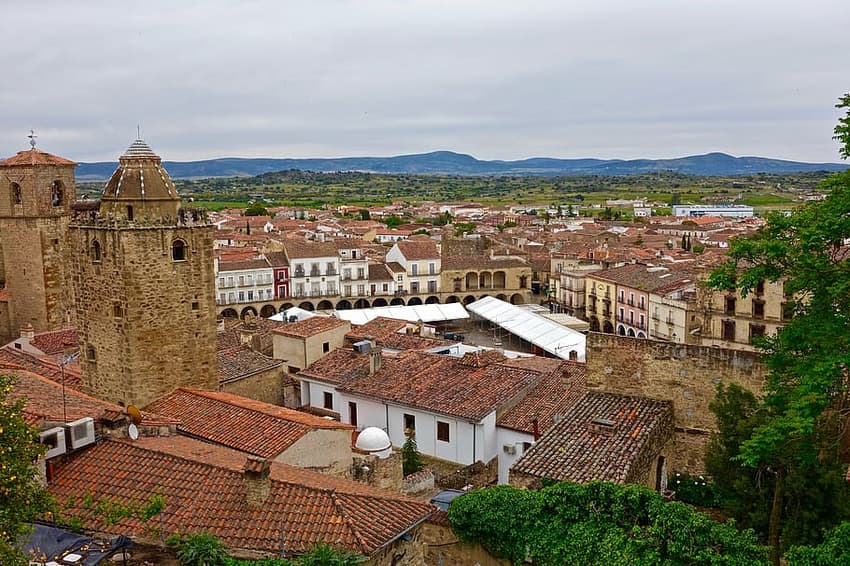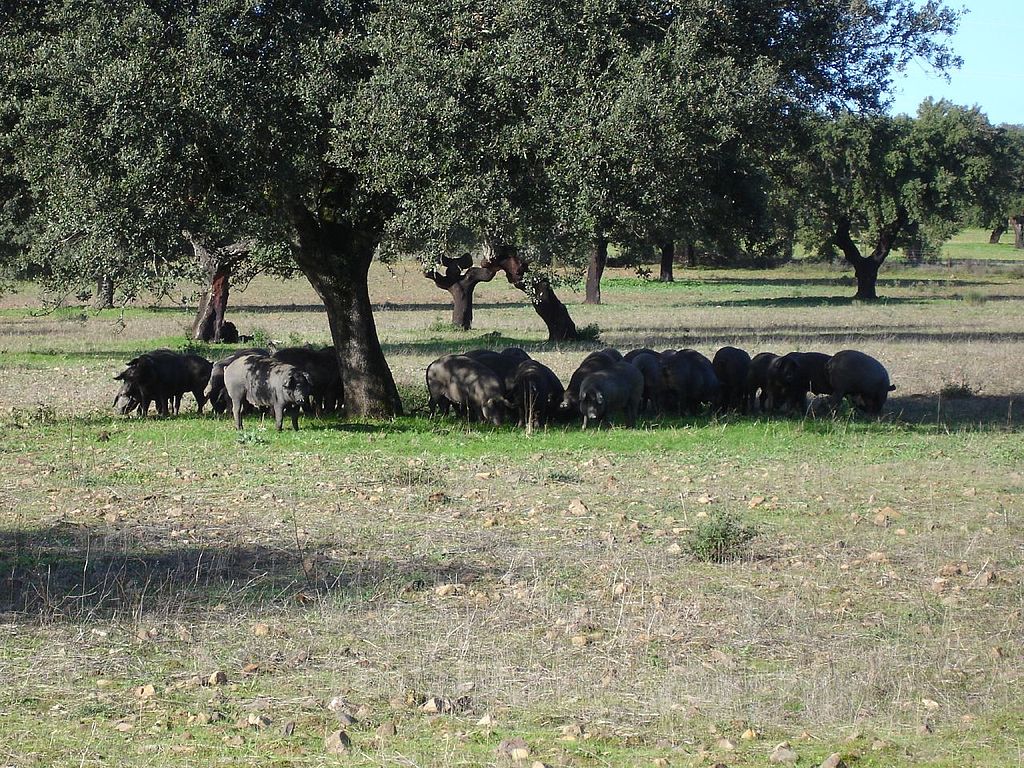What are the pros and cons of life in Spain’s Extremadura?

Located on the western edge of Spain, bordering Portugal, Extremadura is not the Spain that everyone pictures when moving here - but living in this area does have several advantages.
Pros of living in Extremadura
Let's start with the positives and some of the great things about Extremadura
It has a low cost of living
Extremadura is one of Spain’s cheapest regions and if you’re not relying on local salaries, your money can go a long way here – this is especially true when it comes to renting or buying property. According to property portal Enalquiler, the cost of renting in the capital of Mérida costs on average €819 and Idealista lists the average rental price for Cáceres as 5,8 €/m2. Surprisingly though, eating out and groceries cost more on average in Cáceres than in Spain’s other big cities, including Malaga, Seville and Valencia, according to cost of living website Numbeo.
It’s home to gorgeous historic cities
History buffs are sure to fall in love with Extremadura and its wealth of ancient attractions. The Romans definitely left their mark on the region and many structures from that era still remain. The city of Mérida was founded in 25 BC and became one of the most important cities of the Roman Empire.
Today, it’s home to more Roman monuments than any other city in the country. Cáceres, meanwhile has been listed by UNESCO for its well-preserved old town, crisscrossed by medieval streets and home to fortified houses and palaces, encircled by 12th century Moorish walls.

The Roman Theatre in the city of Mérida. Photo: Lmbuga (Luis Miguel Bugallo Sánchez) / Wikimedia Commons
It’s one of Spain’s most peaceful and least-visited regions
If you’re really looking to immerse yourself in local Spanish culture, then Extremadura could be the ideal place. You won’t find large groups of other foreigners here like you do in the Alicante region, Costa del Sol, or cities such as Madrid and Barcelona. Extremadura doesn’t get overrun with tourists either, so you'll find it's generally peaceful and devoid of crowds.
Nature is never far away
Extremadura’s cities may be smaller than others in Spain, but this is a region for nature enthusiasts, featuring one national park and three natural parks. The most famous of these is the Monfragüe National Park, filled with oaks and cork forests and home to one of the largest colonies of black vultures in the world.

Monfragüe National Park in Extremadura. Photo: Alonso de Mendoza / WikiCommons
You can easily hop over to Portugal for the day if you have a car
Being so close to Portugal, it’s very easy to hop between the two. The region may not have the best public transport, but if you have your own car there’s little hassle. From Cáceres for example, you can be in Portugal in under two hours, making it very simple to zip between the two countries on a regular basis.
Cons of living in Extremadura
But before we get too carried away, let's look at some of the drawbacks . . .
You’re far from the coast
Apart from the centre of Spain and Madrid, Extremadura is one of the furthest places away from the coast. If you're picturing your days on the beach when you move to Spain, then Extremadura probably isn’t for you. The closest coastal town is Huelva, which you can reach in around 3 hours 20 minutes from Cáceres.

Extremadura doesn't have a coastline, but it does have the Dehesa landscape. Photo: comakut from Marbella / Wikimedia Commons
Public transport isn’t the best
Public transport in Spain is generally excellent, but unfortunately, Extremadura has one of the least extensive networks.
The high-speed train from Madrid finally opened in 2022 after much anticipation, but as of yet it does not reach the city of Plasencia or the Portuguese border. There are also trains that run from Mérida to Seville, but within the region itself, the train lines are few and far between and services are not frequent.
There are not a wide variety of jobs to choose from
The job market is very limited in Extremadura. Most vacancies can be found in the agricultural or hospitality sectors. If you hope to move there to find work you may find it very difficult, unless you have a particular skill set that is in demand in the region. You won't find large international companies like in Spain's bigger cities either.
The best position to be in to move to Extremadura as a foreigner is to work remotely online or be self-employed, that way you’re not relying on the local job market and economy.

Jobs in agriculture are the most common in Extremadura. Photo: ELVIS BARUKCIC / AFP
Temperatures can be extreme
Extremadura is one of the hottest regions in Spain and temperatures can be stifling during the long hot summers. Historically, the average summer temperature is around 26C, one of the highest in the country, but over the last few years, the region has regularly been experiencing temperatures of over 40C.
Summers are also very dry, while winters are characterised by cool, damp weather.
Comments
See Also
Pros of living in Extremadura
Let's start with the positives and some of the great things about Extremadura
It has a low cost of living
Extremadura is one of Spain’s cheapest regions and if you’re not relying on local salaries, your money can go a long way here – this is especially true when it comes to renting or buying property. According to property portal Enalquiler, the cost of renting in the capital of Mérida costs on average €819 and Idealista lists the average rental price for Cáceres as 5,8 €/m2. Surprisingly though, eating out and groceries cost more on average in Cáceres than in Spain’s other big cities, including Malaga, Seville and Valencia, according to cost of living website Numbeo.
It’s home to gorgeous historic cities
History buffs are sure to fall in love with Extremadura and its wealth of ancient attractions. The Romans definitely left their mark on the region and many structures from that era still remain. The city of Mérida was founded in 25 BC and became one of the most important cities of the Roman Empire.
Today, it’s home to more Roman monuments than any other city in the country. Cáceres, meanwhile has been listed by UNESCO for its well-preserved old town, crisscrossed by medieval streets and home to fortified houses and palaces, encircled by 12th century Moorish walls.

It’s one of Spain’s most peaceful and least-visited regions
If you’re really looking to immerse yourself in local Spanish culture, then Extremadura could be the ideal place. You won’t find large groups of other foreigners here like you do in the Alicante region, Costa del Sol, or cities such as Madrid and Barcelona. Extremadura doesn’t get overrun with tourists either, so you'll find it's generally peaceful and devoid of crowds.
Nature is never far away
Extremadura’s cities may be smaller than others in Spain, but this is a region for nature enthusiasts, featuring one national park and three natural parks. The most famous of these is the Monfragüe National Park, filled with oaks and cork forests and home to one of the largest colonies of black vultures in the world.

You can easily hop over to Portugal for the day if you have a car
Being so close to Portugal, it’s very easy to hop between the two. The region may not have the best public transport, but if you have your own car there’s little hassle. From Cáceres for example, you can be in Portugal in under two hours, making it very simple to zip between the two countries on a regular basis.
Cons of living in Extremadura
But before we get too carried away, let's look at some of the drawbacks . . .
You’re far from the coast
Apart from the centre of Spain and Madrid, Extremadura is one of the furthest places away from the coast. If you're picturing your days on the beach when you move to Spain, then Extremadura probably isn’t for you. The closest coastal town is Huelva, which you can reach in around 3 hours 20 minutes from Cáceres.

Public transport isn’t the best
Public transport in Spain is generally excellent, but unfortunately, Extremadura has one of the least extensive networks.
The high-speed train from Madrid finally opened in 2022 after much anticipation, but as of yet it does not reach the city of Plasencia or the Portuguese border. There are also trains that run from Mérida to Seville, but within the region itself, the train lines are few and far between and services are not frequent.
There are not a wide variety of jobs to choose from
The job market is very limited in Extremadura. Most vacancies can be found in the agricultural or hospitality sectors. If you hope to move there to find work you may find it very difficult, unless you have a particular skill set that is in demand in the region. You won't find large international companies like in Spain's bigger cities either.
The best position to be in to move to Extremadura as a foreigner is to work remotely online or be self-employed, that way you’re not relying on the local job market and economy.

Temperatures can be extreme
Extremadura is one of the hottest regions in Spain and temperatures can be stifling during the long hot summers. Historically, the average summer temperature is around 26C, one of the highest in the country, but over the last few years, the region has regularly been experiencing temperatures of over 40C.
Summers are also very dry, while winters are characterised by cool, damp weather.
Join the conversation in our comments section below. Share your own views and experience and if you have a question or suggestion for our journalists then email us at [email protected].
Please keep comments civil, constructive and on topic – and make sure to read our terms of use before getting involved.
Please log in here to leave a comment.